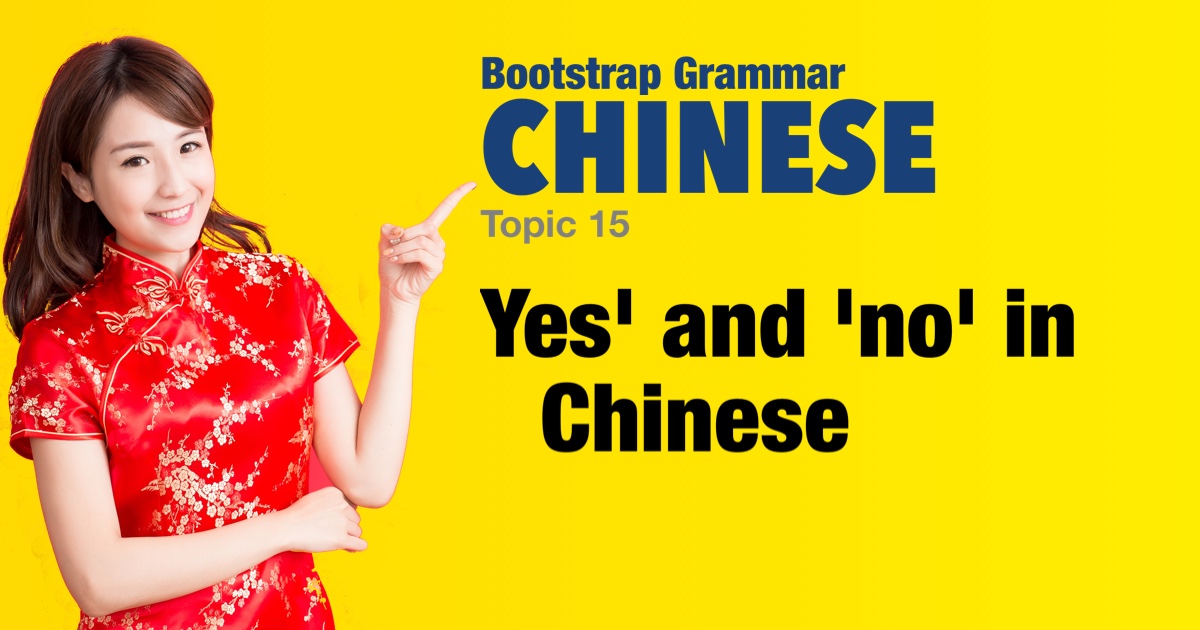Chinese grammar - Yes' and 'no' in Chinese |
|||
|
|||
Responding 'yes' or 'no' is a bit different in Chinese. There are no words for 'yes' and 'no' explicitly. Instead Chinese requires that the responder directly affirm or negate the verb from the question rather than use a simple 'yes' or 'no'. • So a question that uses the verb 是 (shì) should get the response 是 for 'yes' and 不是 for 'no'. • And question that uses the verb 有 (yǒu) should get the response 有 for 'yes' and 没有 for 'no'. |
| Examples: | |
|
你是中国人吗?是。
nǐ shì zhōngguó rén ma?#shì. Are you Chinese? (Yes, I) am. |
|
|
你是中国人吗?不是。
nǐ shì zhōngguó rén ma?#bù shì. Are you Chinese? (No, I) am not. |
|
|
那是苹果吗?是,那是苹果。
nà shì píngguǒ ma?#shì,#nà shì píngguǒ. Is that (an) apple? (Yes, it) is, it is (an) apple. |
|
|
这些是桌子吗?不是,这些是椅子。
zhè xiē shì zhuōzi ma?#bù shì,#zhèxiē shì yǐzi. Are these tables? (No,) those (things) are chairs. |
|
|
你有一个苹果吗?没有,我没有。
nǐ yǒu yí gè píngguǒ ma?#méi yǒu,#wǒ méi yǒu. Do you have an apple? (No,) I do not have. |
|
|
有三把椅子吗?有,有三把。
yǒu sān bǎ yǐzi ma?#yǒu,#yǒu sān bǎ. Are there three chairs? (Yes,) there are, there are three.
|
|
|
她有孩子吗?有,她有。
tā yǒu háizi ma?#yǒu,#tā yǒu. Does she have children? (Yes,) she does have. |
|
|
没有,我没有票。
méi yǒu,#wǒ méi yǒu piào. (No, I) don't have, I do not have (the) ticket(s).
|
|
|
你有钱吗?有,我有。
nǐ yǒu qián ma?#yǒu,#wǒ yǒu. Do you have money? (Yes,) I do have. |
|
|
他吃苹果吗?吃。
tā chī píngguǒ ma?#chī. Does he eat apples? (Yes, he) eats. |
|
|
他吃苹果吗?不吃。
tā chī píngguǒ ma?#bù chī. Does he eat apples? (No, he) doesn't eat. |
|
|
她认识医生吗?不,她不认识。
tā rènshi yīshēng ma?#bù,#tā bú rènshi. Does she know the doctor? No, she doesn't know (him).
|
|
 |
|


 Notice the repetition of the appropriate counter
Notice the repetition of the appropriate counter
